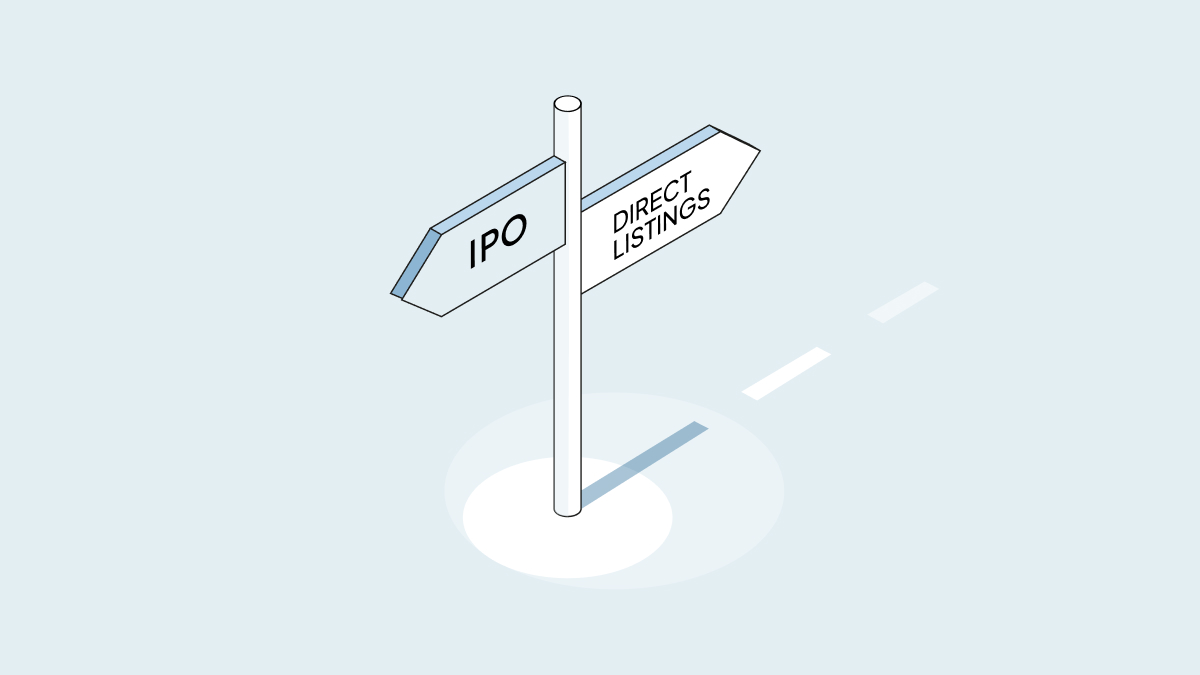Traditionally, investment banks are at the heart of the initial public offering (IPO) process, producing research reports and marketing a company to drive up demand ahead of its listing. Banks also act as underwriters, meaning they assess the financial risk of a company and help market shares to interested institutional investors. But there are signs that tech companies are increasingly forgoing the standard IPO process in favor of a Direct Public Offering (also known as a direct listing). Spotify surprised the market by doing a direct listing in 2018 and was one of the largest companies since Ben & Jerry’s to ever do so. Slack1 is the latest company to follow this trend.
What is a direct listing?
In an IPO, underwriters purchase shares from the company and sell them to investors through their distribution channels, raising new money for the company. In a direct listing, existing shareholders (employees and investors) are able to sell their outstanding shares on the open market or a secondary private market leading up to the initial day of trading on a public exchange, but no new capital is raised for the company.
Here’s a basic breakdown of what companies and employees like about each option:
|
|
Why companies like it |
Why shareholders like it |
|
IPO |
Confidence in your opening share price. |
Less potential volatility. Because underwriters work to determine demand for the offering at a particular price and may help stabilize the IPO price, there’s theoretically less of a chance that the stock price plummets on the first day– though it can still happen. |
|
Direct Listing (DLP, DPO) |
Direct listings may be significantly less expensive than an underwritten IPO. Investment banks collect between 4-7% of capital proceeds raised in addition to other costs. For Spotify, their direct listing cost -$47 million instead, but would have been much more with a traditional IPO. |
No dilution. Imagine you’re at a dinner party with five other friends, and the host is about to slice a pie for the six of you. Then four more friends show up, so instead of cutting six slices, the host cuts 10. You still get your share, but instead of ⅙ of the pie, you get 1/10. That’s what dilution feels like. When a company IPOs, they flood the public market with new shares that dilute the value of everyone’s existing shares. In a direct listing, no new shares are issued. This means there’s no dilution for existing shareholders and their options are more likely to retain their value. |
Unprecedented access to late-stage capital may be driving demand for this alternative path. Although 2019 has been called an IPO boom, we’re actually in a period of historically low numbers of IPOs. Private companies have plenty of options for venture capital and are staying private longer. Meaning, investors and early employees have to wait to turn their stock options into wealth. Direct listings give companies a way to provide liquidity to all shareholders without diluting shares and making them less valuable—or spending a ton of money on underwriters.
Because Spotify’s stock has been relatively stable following its direct listing, companies like Airbnb are also considering following suit. Some, like TransferWise, are opting for big secondary rounds that provide liquidity opportunities to early investors and insiders. This can remove some of the pressure to pursue an IPO or direct listing. Although not all companies are able to support a secondary round, doing so enables shareholders to sell some amount of stock without dealing with public markets at all.
1 Slack founder and CEO Stewart Butterfield is an investor in Carta.



